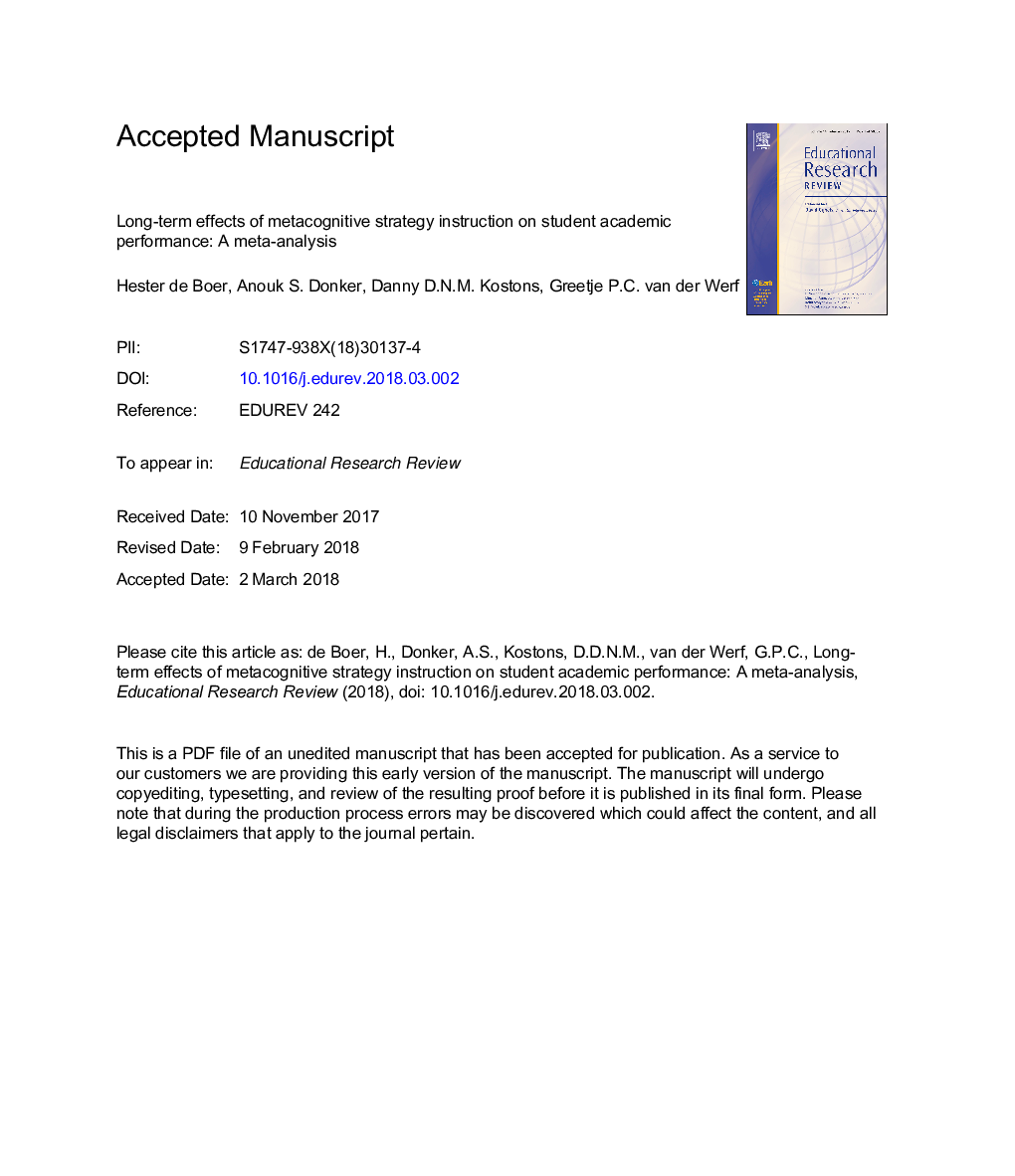| Article ID | Journal | Published Year | Pages | File Type |
|---|---|---|---|---|
| 6840961 | Educational Research Review | 2018 | 57 Pages |
Abstract
Meta-analyses have shown the positive effects of strategy instruction on student performance; however, little meta-analytical research has been conducted on its long-term effects. We examined the long-term effects of 48 metacognitive strategy instruction interventions on student academic performance. The results show a very small increase of the effect at long-term compared with the posttest effects. The instruction effect at posttest increased from Hedges' gâ¯=â¯0.50 to 0.63â¯at follow-up test. Moderator analyses showed that low SES students benefited the most at long-term. Furthermore, instructions including the cognitive strategy 'rehearsal' had lower long-term effects compared to interventions without this component. Other specific strategies (within categories metacognitive, cognitive, management, or motivational) did not moderate the overall positive long-term effect of metacognitive strategy instructions. Particular attributes of the intervention -subject domain, measurement instrument, duration, time between posttest and follow-up test, and cooperation - neither had an impact on the follow-up effect.
Related Topics
Social Sciences and Humanities
Psychology
Developmental and Educational Psychology
Authors
Hester de Boer, Anouk S. Donker, Danny D.N.M. Kostons, Greetje P.C. van der Werf,
